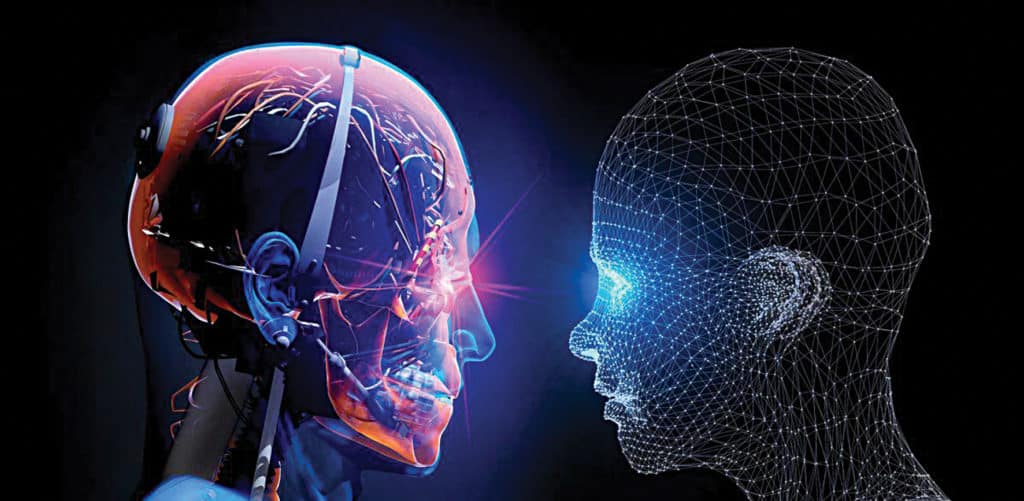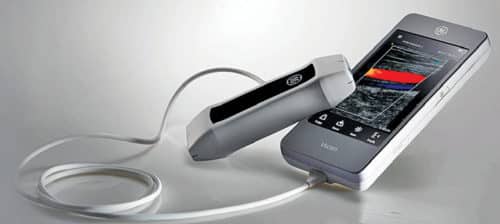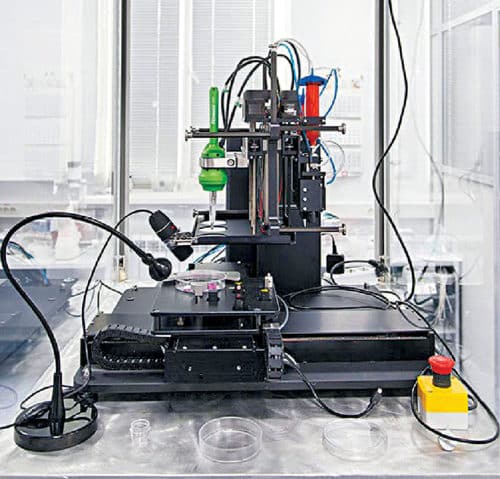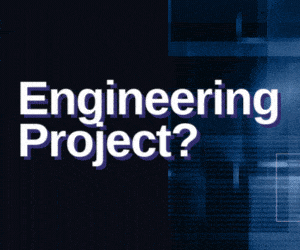AI technology is making its presence felt in the healthcare industry at a very fast pace. However, these new developments raise the question: Will AI replace doctors and nurses in the future? Read on to find out…

The intellectual prowess of humans and technological advancements in the 21st century can cause excitement, worry and fear at the same time. We have come across many science fiction stories and movies, some of which can be scary. These feature machines and robots taking control over humans, bringing the dead alive, communicating with intelligent beings in outer space and so on.
Artificial intelligence (AI) was once fiction but is now a reality. The quest for human longevity, and peace of mind and body through modern technology has resulted in many positive outcomes. Modern science and AI have brought in new ways to improve human existence, survival and achieve certain feats that were otherwise not possible. The pace of technological progress in genetics, 3D bioprinting, nanotechnology, medical imaging, voice recognition, biosensors and AI will become so fast that humans will undergo a radical evolution.
AI is part of the new frontier in the medical and healthcare industry. But with the proliferation of AI and its advantages in healthcare space, there are speculations that AI will someday replace human doctors in many areas. There are many proofs to support this statement, some of which are covered in this article.

AI winter or AI spring
AI is different from previous technological innovations because it can learn and is more intelligent. Earlier, there were setbacks and frustrations while pursuing AI programs—the term is called AI winter and it first appeared in 1984. But with recent progress in speech recognition, image processing and machine learning, AI has become an essential component of almost every field.
Modern technology has demonstrated many wonders in such areas as self-driving cars, autonomous drones, medicine and healthcare services. Use of AI and the Internet of Medical Things (IoMT) in healthcare is already helping many people.
Now, AI and machine learning are becoming hot topics. Andrew Ng, former director of Google’s first AI group, Google Brain and former chief scientist of Baidu, believes that we have entered an eternal AI spring. This is because AI and machine learning have a wide range of applications and a clear roadmap for changing almost all industries. With AI, there are many wonders and surprises in store for us in the coming years. AI is limited only by our imagination!
Medical AI is so hot!
Tens of millions of people die each year from diseases that are treatable. Cancer treatment is not affordable by many. Now, AI is being employed in diagnosing cancer, tuberculosis, skin, eyes, stroke and other conditions, and it is more precise, accurate, faster and cheaper. AI is not only an industry-disrupting force but an important component that leads to affordability and accessibility for common people.
The current stethoscope could be a dumb thing in the future. For example, an Australian company has developed an AI-enabled electronic stethoscope called Stethee, which is far better than the current stethoscope. Stethee can be used as a regular stethoscope, in addition to being used to amplify, filter and record sounds, and to analyse sounds using an accompanying smartphone app.
An ultrasound machine is quite costly, but as technology progresses, its cost will come down and it will be affordable by individuals. There are promising signs of AI solutions in ultrasound imaging. For example, iQ probe with semiconductor chips, developed by Butterfly Network, can be used by patients to perform their own ultrasound tests. Understanding the results of an ultrasound can be hard for untrained patients, but iQ has an AI component in it. As AI gets smarter, risks-associated image interpretation will eventually reduce.
Portable ultrasound that can be accessed on the cloud and smartphones are now available in the market. Israel-based DiA Imaging Analysis, in partnership with GE Healthcare, has developed Vscan, a smartphone-sized ultrasound device. It also collaborates with Google Cloud to offer AI-powered automated ultrasound analysis for patient care, enabling quick analysis and easy accessibility anywhere, anytime.
There is concrete proof that AI is way better than a radiologist in detecting various parameters of the human body. A recent report showed that Google AI machine can tell vital body details including gender, heart conditions or other cardiovascular problems just by scanning the eyes.
In China, AI is being used to detect diseases that cause blindness. Researchers are using AI to support instant diagnosis of blindness and diabetes-related eye diseases in the earliest stages. Reports suggest that eye diseases can be treated faster with AI.
AI has had a strong impact on healthcare advancements due to its ability to analyse massive amounts of genomic data, leading to more accurate prevention and treatment of medical conditions on a personalised level. Use of AI robotic surgery has spread rapidly in recent years and, for certain types of operations, it has become the standard.
Imagine that a hospital full of AI-humanoid robots! A robotic doctor pulls your arms and legs to check your body condition; you may feel awkward or uncomfortable at the first instance. But that could be the scenario in the future.
AI and 3D bioprinting
3D bioprinting is the utilisation of 3D printing to print tissues and organs to help research drugs and pills. Researchers at a hospital in Boston have pioneered a 3D bioprinting technique that can create complex structures to replace damaged body tissues. This advanced technique could lead to a huge demand for bioprinting complex artificial tissues.
AI-powered medical imaging software developed by Aether has given a significant boost to 3D organ printing.
The thyroid gland printer from Russia-based 3D Bioprinting Solutions is shown in Fig. 2.
AI and DNA sequencing
Genome editing (or gene editing) is a type of genetic engineering. The worlds of genetics and AI are set to explode soon. With genetic engineering we can reprogram the basic building blocks of life—a reliable technique for making precise changes to an individual’s DNA (deoxyribonucleic acid). For example, in the future, we may be able to eliminate autism from the human genome. With advances in AI applications, researchers will be able to interpret and act on genomic data much faster, more accurately and at a lower cost.
China is a huge power house of DNA sequencing. BGI-Shenzhen has emerged as a genomics superpower. It has agreed to collaborate to sequence the genomes of 5000 cassava varieties and 10,000 autism patients and family members, and carry out heaps of sequencing for the international Human Variome Project.
Must read: Artificial Intelligence in Autism Care.
Nanotechnology, 3D bioprinting and AI can boost researches in these disciplines and provide a new generation of technologies that can have a huge positive impact on human lives and medical science. Many predict that genetic editing and the nanotech revolution aided by advanced AI could easily redesign and rebuild human bodies.

AI and healthcare in India
AI in the healthcare sector in India is extremely positive. With a large population in a country like India, there is a huge gap between skilled doctors and patients. AI is the right option to tackle such problems as an uneven doctor-to-patient ratio, untrained doctors and nurses for complex procedures, and no healthcare access to remote and rural areas.
The government of India is taking keen interest in the national strategy on AI and other emerging technologies. Its think-tank, NITI Aayog, has identified five such sectors, including healthcare, to focus its efforts towards implementation of AI. NITI Aayog is in partnership with Google for developing AI-based solutions to accelerate the future of machine learning and AI in India. The partnership will build AI-assisted models to detect diabetic retinopathy screening models that will help in early risk detection.
NITI Aayog has also signed a statement of intent with various companies, including ABB, IBM and SAP, related to AI projects. It is also collaborating with Intel and Tata Institute of Fundamental Research (TIFR) on various AI-based research projects.
There are many Indian startups in the field of AI-based healthcare including Lybrate, mfine, Artelus, ChironX, LiveHealth, OnliDoc and Qure.ai.
- Lybrate is an online doctor consultation platform that connects patients with doctors and provides online consultation. Patients can also book lab tests and appointments online.
- mfine provides a virtual doctor with the ability to diagnose and triage common diseases.
- It refers patients with serious conditions to a hospital. Its goal is to provide healthcare to every Indian, including those in remote areas, through its virtual platform and AI software.
- OnliDoc uses AI and machine learning for end-to-end medical diagnosis. It has a phone application (available on Apple Store and Google Play Store) that can be used to find doctors, book appointments, and store medical records and prescriptions.
- LiveHealth is a management information system (MIS) for healthcare providers. It collects samples, manages patient records, diagnoses patients and generates reports.
Will AI replace doctors?
Over the course of various industrial revolutions, horses were replaced by machines yet there were no complaints. But think of machines replacing humans. Human doctors can make errors and many patients die due to such errors. Doctors suffer from fatigue, personal problems and other priorities at times. They are not machines that can do strenuous work and work long hours.
On the other hand, machines can do the job repeatedly without any complaint. These can detect skin, heart, eyes and other diseases. AI robots can do precision spinal cord surgery, too. AI is less invasive, faster and more accurate.
A recent report showed that an AI chatbot can diagnose medical conditions as accurately as a doctor. AI is also becoming more popular in areas such as radiology and cancer detection. All these new developments with AI raise the question: Will AI replace doctors and nurses in the future?
Co-founder of Sun Microsystems says that 80 per cent of doctors will be replaced by machines in the future. Some even think that bare hands may be banned and only AI robots will be allowed to do surgical procedures in the future.
AI replacing doctors in the near future is still a skeptical thought. A calculator can do amazing things at a fast speed and with accuracy, but that does not mean it can replace a mathematician. Doctors are required to develop medical AI.
Human emotion is the forte of human doctors. A company in Japan has developed emotional AI that can exhibit emotions. But patients need human touch, emotions and feelings. Human sympathy, empathy, perception and emotion are different from that of machines. So at this point of time, doctors are definitely going to stay!
What’s next?
It is true that humans have a long record of failed quests for immortality. Can modern science and technology bring back the dead? Imagine a dead body kept in front of an AI machine. Now, let AI apply the most complex algorithm on the corpse. Lo and behold, the dead comes alive! Is that a possibility? No, that is creepy, and it can only be possible in imagination and in movies! AI cannot do wonders on the corpse, but it can revolutionise the medical industry in a big way.
Human organs and tissues can fail due to illnesses or accidents. Scientists can now repair damaged organs and tissues. There is a 3D bioprinting technique that prints human organs for replacing damaged organs. This means humans can now live longer.
AI has been created by humans—it is not a prophecy but a reality. And the reality is that we should expect the good, the bad and the ugly out of AI technology. There are speculations that a day will come when AI robots will effectively take control of the planet away from the human species. Such imaginations can cause fear and trepidation in humans.
It is certain that medical advances and AI could potentially lead to massive benefits in healthcare and medical diagnoses. There are lots of problems in the healthcare industry, such as human errors and staff shortages. AI can fill the blind spots and eventually solve problems that we are facing today.
There are always pros and cons of any new and emerging technology. One disadvantage with AI could be a concern for privacy/security for patients because data could be on the cloud or connected devices. There could also be bias towards people who cannot afford Internet connectivity and access to high-tech data resources. Since AI is based on algorithms, anyone who has bad intentions could also develop an algorithm. Bad government policies could impede productivity and harm humans. Without proper regulatory bodies, implementation of AI technologies could also be at risk.
Conclusion
AI has a lot of potential, enormous benefits and opportunities, and is sure to bring many wonders to the healthcare space. The emergence of medical AI could radically change the course of human history and the healthcare industry. AI and 3D printing could replace damaged organs just like replacing parts in machines.
AI technology is making its presence felt in the healthcare industry at a very fast pace. India is one of the fastest adopters of AI-based healthcare services. One of the greatest potential benefits of AI is to help humans stay healthy so that a doctor is not required as often. AI will not fully replace human doctors but will certainly improve physician performance, and at the same time offer patients more accessibility to healthcare at lower costs. Proper regulations and a legal framework are required to make the best out of AI to serve mankind in a better and more beneficial way.
This article was first published on 5 July 2019 and was updated on 2 March 2021.







